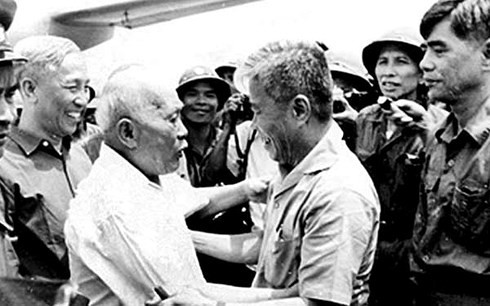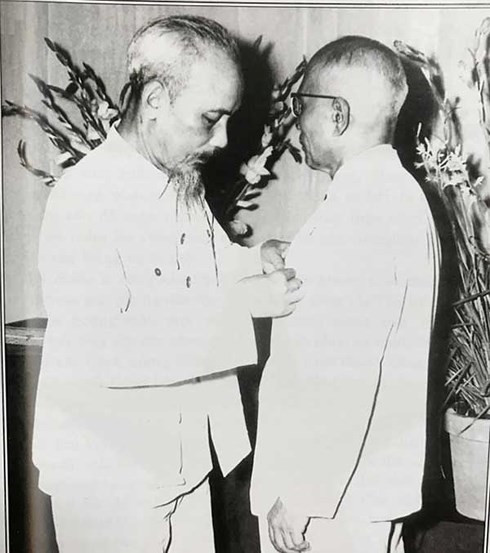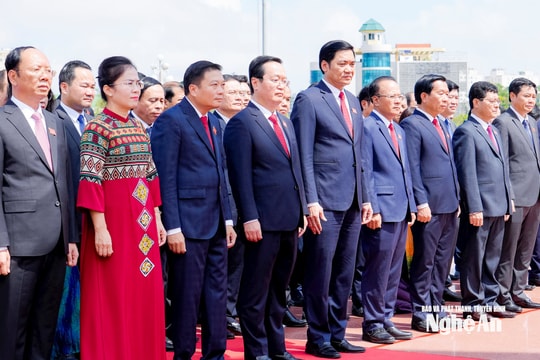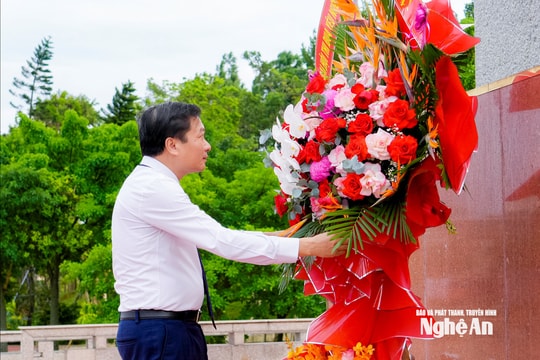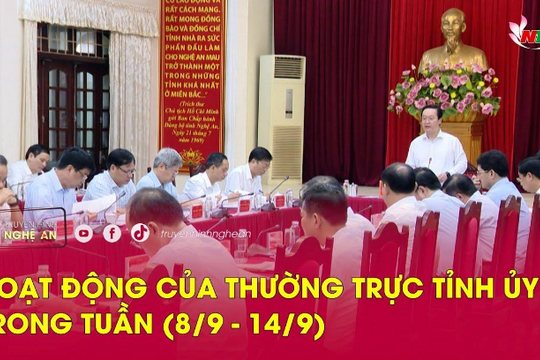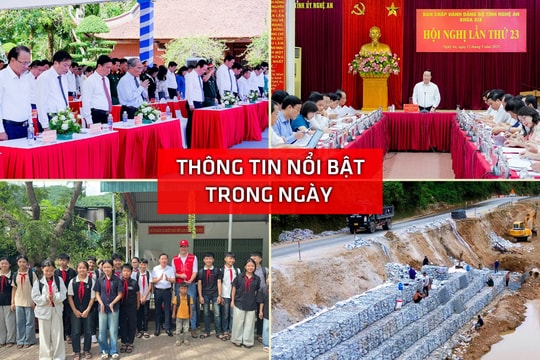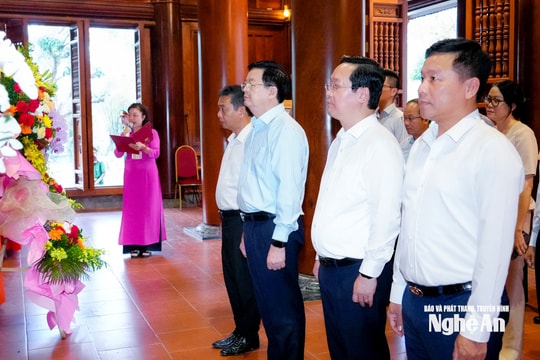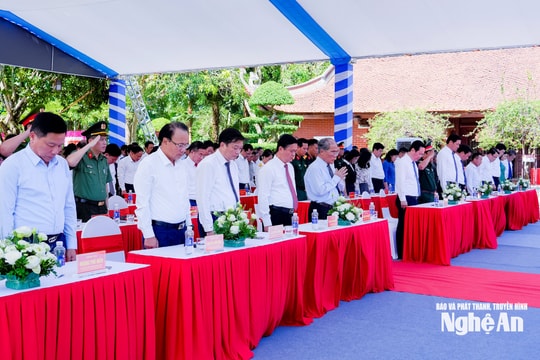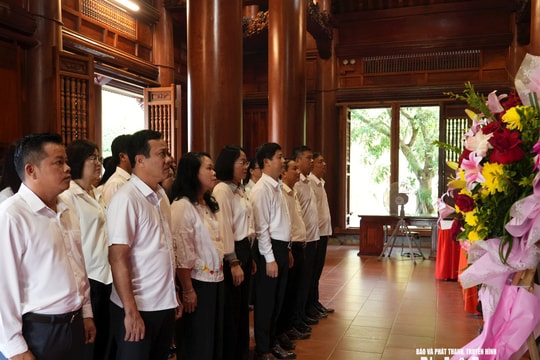Remembering Uncle Ton
Late Prime Minister Pham Van Dong once said that the most precious legacy that comrade Ton Duc Thang left to the people was the personality of Ton Duc Thang.
President Ton Duc Thang was born on August 20, 1888 and died on March 30, 1980. His life spanned 92 springs, including nearly 70 years of dedication to the revolutionary cause. He was an outstanding leader whom our people still affectionately and respectfully call Uncle Ton.
“The most precious legacy that comrade Ton Duc Thang left to the people is the personality of Ton Duc Thang, a synthesis of Southern chivalry, Vietnamese resilience and creative talent, the pioneering qualities of the working class, the revolutionary qualities of a patriot and communist, and the humanity of a human being” - late Prime Minister Pham Van Dong.
Memoirs of a Private Secretary
During his 11 years as a private secretary to President Ton Duc Thang, Mr. Le Huu Lap has countless memories of this outstanding revolutionary. For him, each memory creates a unique portrait of Uncle Ton's personality, a person who was very simple and exemplary in both life and work.
|
| Uncle Ton Duc Thang happily returned to visit the South after the country's reunification. |
According to Mr. Lap: “Uncle Ton was very similar to Uncle Ho in that he always lived simply, not far from the standard of living of ordinary people. When working in the room, Uncle Ton often wore only leaf-leaf clothes. Leaf-leaf clothes are a type of shirt from the South, with a scoop collar, buttons in the middle, and two pockets on both sides. In winter, when I came over, I saw Uncle Ton wearing a worn-out brown sweater. The bottom of the shirt was torn, so he patched it himself with cloth. The long-sleeved sweaters that were still intact, Uncle gave to all the cadres who had gathered from the South. When I returned to work as a secretary, I received letters from the gathered cadres asking Uncle Ton to follow me, so I forwarded them all to the secretaries and chairmen of the provinces and cities to resolve. If Uncle Ton had given away all his things, what would he have to use? Coming from a working class background, Uncle Ton considered doing everything himself as a form of entertainment. In Uncle Ton's drawer, there were always enough sets of tools such as carpentry, welding, etc. At that time, a bicycle sold by Czechoslovakia was 13 dong, but sold freely was 18 dong. Uncle Ton bought one and paid 18 dong, because he said he had already been provided with a car, so why would he compete to buy a bicycle? Uncle Ton always repaired and took care of his bicycle himself, and it was still like new after all these years.
Even in the "rather sensitive" aspects for someone holding a great responsibility, touching on benefits such as means, houses... in the memory of his personal secretary, Uncle Ton always showed his "diligence, thrift, integrity, and uprightness".
Mr. Le Huu Lap said: “Even with cars, Uncle Ton only had a small car to go on business trips. When he became President, he only used normal cars given by the Soviet Union, and gave up his nice cars to pick up and drop off guests. Later, he only used military command cars. Uncle Ton said that when people saw him riding this car, they wouldn't think he was a big shot, and besides, it was so bumpy like this, it was no different from helping him exercise. When Uncle Ton turned 80, he planned to return all the assets that the State provided him, such as color TVs, refrigerators, fans... and the house where he lived and worked. Although all those assets were very valuable and rare at that time, Uncle Ton didn't keep anything for his family.”
Also regarding the housing issue for Uncle Ton, Mr. Le Huu Lap recalled: “After the liberation of the South, one time Mr. Pham Hung (at that time a member of the Politburo, Deputy Prime Minister) called me and Mr. Phuc (Uncle Ton's son-in-law) to meet. Mr. Pham Hung said intimately: “He is almost 90 years old this year, if we bring him to live in the South, the warm weather all year round will be good for his health, prolonging his life. If not completely, then at least bring him in during the cold winter days. Mr. Lap and Mr. Phuc cannot back down; when we go home, we must encourage him to agree.”Later, during a business trip, we were taken to visit a very large villa on the Saigon River, surrounded by several quite beautiful houses. The escort said that the Central Committee planned to reserve this villa for Uncle Ton, and this house belonged to Mr. Lap, that house belonged to Mr. Phuc... When we returned to Hanoi, we reported to Uncle Ton. He thought for a moment, then said: "The resistance war was arduous, we did not have the strength to fight, now that peace has come, we live in a big, beautiful house; isn't that better than taking over the house?". Knowing his personality, we gave up the idea of persuading him.
Just those details in the personal secretary's memoirs clearly show "Ton Duc Thang's personality" with "the chivalry of a Southerner, the humanity of a human being, the revolutionary quality of a communist" as the late Prime Minister Pham Van Dong once commented.
The Cause of a Rare Friendship
Uncle Ton was two years older than Uncle Ho, but he still called Uncle Ho "Uncle". Uncle Ho still called his close comrade-in-arms "Uncle Ton". They considered each other as friends before they even met. After the August Revolution succeeded, from Con Dao prison, Uncle Ton returned to the mainland and participated in leading the Revolution.
In March 1946, Uncle Ton was mobilized by the Party Central Committee to go to the North and for the first time met Uncle Ho - leader Nguyen Ai Quoc whom Uncle Ton always admired. As for Uncle Ho, he heard about the worker Ton Duc Thang who had organized a secret Trade Union since 1920.
|
| Uncle Ho, on behalf of the Party, State and National Assembly, awarded the Gold Star Order to Uncle Ton. Photo courtesy |
In 1926, in China, when sending two comrades Nguyen Van Loi and Tran Trong Binh to Saigon to establish the Vietnam Revolutionary Youth Association, comrade Ly Thuy (Uncle Ho's alias) instructed: When you arrive in Saigon, you must find a way to contact Ton Duc Thang! Working together in the revolutionary cause, the friendship between the two outstanding revolutionaries grew.
During the meeting on November 8, 1946, the second session of the first National Assembly, opening at the Hanoi Opera House, when President of the Provisional Government Ho Chi Minh announced his resignation, giving the National Assembly the power to choose the person to form a new Government, Southern delegate Ton Duc Thang immediately stood up and loudly stated: "I would like to introduce Uncle Ho Chi Minh, aka patriot Nguyen Ai Quoc, as the person more worthy than anyone else to form a new Government!"
In June 1948, Uncle Ho issued a call for Patriotic Emulation. Before that, Uncle Ho and the Party Central Committee decided to appoint Uncle Ton, a member of the Party Central Committee, as Head of the Central Committee for Patriotic Emulation. In the Viet Bac resistance base, Uncle Ho often invited Uncle Ton to meet him to discuss and exchange ideas on specific tasks to promote the emulation movement for resistance and national construction.
During the following years, Uncle Ton always considered Uncle Ho as a great leader, and Uncle Ho respected Uncle Ton as a comrade, a close and loyal comrade in arms. It is not easy to explain the reasons that created such a rare friendship: a revolutionary career with the same aspirations, special personal feelings, and certainly that like-mindedness even included similarities in life philosophy: wholeheartedly, completely devoted to serving the revolution, serving the people, not demanding, not caring about personal fame or profit, extremely simple and exemplary.
Life is as clear as jade, as white as cotton
In 1958, on the occasion of congratulating President Ton Duc Thang on his 70th birthday, President Ho Chi Minh said: "Comrade Ton Duc Thang is a model of revolutionary morality: a lifelong person of diligence, thrift, integrity, and uprightness; a lifetime of wholehearted devotion to serving the revolution and serving the people."
The late General Vo Nguyen Giap also wrote: “Uncle Ton was an extremely simple man, still a worker, still holding a hammer, pliers... and repairing his own bicycle. Our Uncle Ton is such a man, a worker who represents the revolutionary spirit, the most noble revolutionary ethics of the working class, of the Vietnamese people, of our Party, of our Vietnamese people.”
The late Chairman of the State Council, Vo Chi Cong, affirmed: "Along with loyalty, devotion, steadfast stance, and indomitable courage, Uncle Ton also had the virtues of modesty, simplicity, sincerity, and integration with the masses."
Author Ho Thanh Dien, in the poem titled Remembering Uncle Ho, wrote “...The Black Sea flag has flown since then/ Until now it is still majestic.../...From the time of youth when I went to establish a base/ A time of glorious chivalry/ Seventeen years of hard prison/ Golden history, He left the word loyalty!/ Simple life, rich in virtue/ Cloth covers a rosy heart/ Glory, humiliation, nobility, meanness, the heart remains the same/ Life is pure as jade, white as cotton./.

